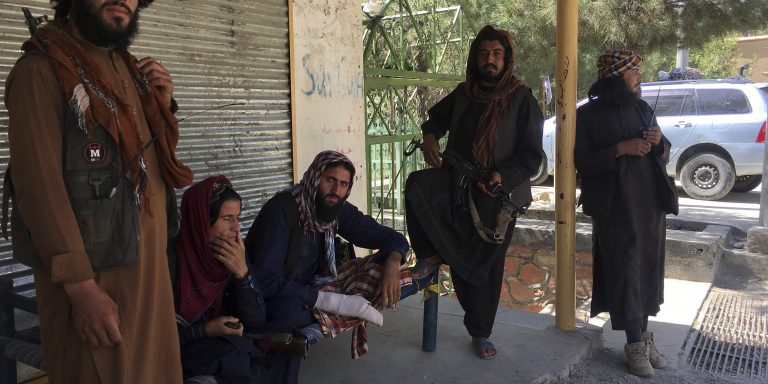INTELBRIEF
September 20, 2021
IntelBrief: Taliban Infighting Poses Early Challenge to Governing Afghanistan

Bottom Line Up Front
- Members of the Taliban’s leadership were on the defensive last week, attempting to downplay reports of infighting within the organization.
- There is a possibility for further division between the more politically minded members of the Taliban and hardliners closely aligned with Pakistan.
- If the Taliban is going to gain political recognition from the international community, it will likely have to include non-Taliban members, ethnic minorities, and women in its governing cabinet.
- One of the most serious risks to future splintering of the Taliban is that hardline defectors could seek to join the Islamic State Khorasan (ISK).
Members of the Taliban’s leadership were on the defensive last week, attempting to downplay reports of infighting within the organization. Abdul Ghani Baradar, deputy prime minister in the Taliban’s current government configuration, denied allegations that he was harmed as the result of an internal power struggle with hardline factions within the group. Baradar is considered part of the Taliban’s more moderate or pragmatic factions and served as the chief negotiator between the United States and the Taliban during the talks in Doha, Qatar that took place over the past several years. Baradar was allegedly in favor of a more inclusive government than the one the Taliban ultimately settled upon, but blamed “shameful lies” by the media for rumors that he was injured or killed in a shootout in the presidential palace in Kabul. Red flags were raised when Baradar was absent from a visit by Qatari Foreign Minister Sheikh Mohammed bin Abdulrahman al-Thani a week ago. After missing the visit, many speculated that Baradar had been sidelined by more powerful forces within the Taliban.
The kerfuffle allegedly resulted from Baradar’s opposition to the appointment of hardline figures including interim foreign minister Amir Khan Muttaqi, interior minister Sirajuddin Haqqani, and minister for refugees Khalil Haqqani. Both Haqqanis have multi-million dollar bounties on their heads, with rewards offered by both the Federal Bureau of Investigation and the U.S. State Department. Muttaqi serves as the Taliban’s minister of culture and education during the group’s rule between 1996 and 2001. Analysts see the possibility for further division between the “Doha group” that is considered more politically minded, and the more militant faction that is considered a part of the “shura leadership,” which was anchored in Pakistan. Hardliners within the Taliban, including the Haqqani contingent, are believed to have the backing of Pakistan’s notorious intelligence agency, the Inter-Services Intelligence (ISI). Baradar was jailed in Pakistan for eight years before being released as part of the Trump administration’s release of high-level Taliban members. It should be noted that there are analysts skeptical that a power struggle is taking place, noting that similar developments have been reported in the past and have turned out to be unfounded.
If the Taliban is going to gain political recognition from the international community, it will likely have to include non-Taliban members, ethnic minorities, and women in its governing cabinet. Following the skirmish, Baradar reportedly traveled to Kandahar, likely to meet with the group’s Supreme Leader, Haibatullah Akhundzada. It is important for the Taliban to present a united front, and not to show vulnerability in terms of cohesion and organizational capabilities. With a looming humanitarian and economic crisis, Afghanistan will face dire consequences if the Taliban government is unable to secure pledges of international aid. Deborah Lyons, United Nations Special Representative for Afghanistan, reiterated the necessity for all UN personnel to have unfettered access within Afghanistan without intimidation or obstruction.
Following twenty years of fighting as insurgents, the Taliban is now tasked with the difficult challenge of governing a war-torn country riven by factionalization and devastated by four consecutive decades of conflict. To stand any chance at succeeding, the Taliban is going to have to tamp down internal divisions and mollify members within the organization that believe the group is being either too militant, or not militant enough. One of the most serious risks to future splintering of the Taliban is that hardline defectors could seek to join the Islamic State Khorasan (ISK), reinforcing its ranks at a time when the group is seeking to gather strength and play a major spoiler role in Afghanistan. Following ISK’s devastating attack on the airport in Kabul in late August, resulting in the deaths of 13 U.S. servicemembers and more than 160 Afghans, the terrorist group is hoping to attract both foreign fighters, but also militants from within Afghanistan.